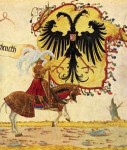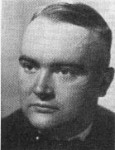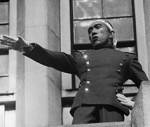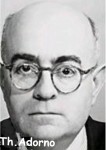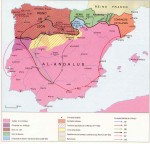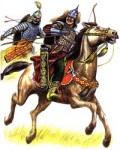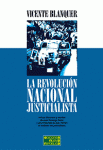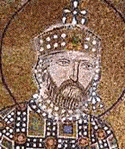
Infokrisis.- No puedo evitar, al escribir estas líneas, dedicar un recuerdo y un homenaje a Francisco de Toledo, noble castellano muerto en combate, en el asedio a la Puerta de San Romano, combatiendo codo a codo con el emperador Constantivo IX, y a Pére Julia, cónsul catalán, ejecutado ominosamente junto a sus últimos combatientes, oriundos de este lado del Mediterráneo, el último día del asedio a Constantinopla en el año 1453. Ellos supieron donde estaba el “lugar justo” para luchar y morir.
Turquía contra Bizancio, esto es, Turquía contra Europa
“Ya hace 550 años que no está el emperador para dirigir los asuntos terrenales; ya no hay logotetas ni strategos ni drungarios, y ningún sebastocrátor cruza a caballo con su guardia Macedonia para dar órdenes directas del emperador a los gobernadores de Bulgaria o Serbia o el Peloponeso; ya no hay monjes en los monasterios de la capital que discutan sobre la naturaleza de Cristo o sobre el significado de los íconos mientras pasean por los jardines aledaños; no hay más soldados que se apresten a defender sus tierras de las invasiones enemigas; no están más los ricos estancieros de Anatolia que proporcionaban enormes contingentes de tropas y los mejores generales nacidos en sus propias familias a los emperadores; nunca más el pueblo bizantino entraría a Santa Sofía para sentir esa emoción indescriptible de encontrarse con Dios, el emperador y el patriarca todos juntos, y disfrutar de esas luces cambiantes a cada minuto que entraban por las aberturas de la famosa cúpula, de los colores indescriptibles e iluminados de las cuentas de los hermosos mosaicos de sus paredes, de ese sonido único cuando todos están rezando y el eco vuelve enternecedor y soberbio; no están ya los marineros que prestos acudían de puerto en puerto combatiendo a todos los que osaban entrar en aguas del imperio; ya no habrá casas libres con íconos en su interior a los cuales poder rezar largamente y pedirles salud, bienestar y solución a sus problemas; no hay más sublevaciones contra los emperadores injustos o pecadores; no hay más embajadores con regalos para los potenciales aliados, no hay más romanos en este mundo”.
Rolando Castillo (septiembre 2003)
imperiobizantino.com
Cuando cae Constantinopla en poder de los turcos, es todo un viejo orden el que se desploma, hasta el punto de que los historiadores consideran que el episodio marca el fin de la Edad Media y el inicio de la Edad Moderna. Hoy, nuevamente, por azares del destino, los descendientes de los conquistadores de Constantinopla, corren el riesgo de provocar un cataclismo en la Europa integrada. Hoy, cuando han pasado más quinientos cincuenta años de la caída de la ciudad, todavía subsisten algunos conflictos derivados de aquel episodio. Que se le pregunten a los griegos, durante cuatrocientos años sometidos al yugo turco y que hoy mantienen todavía abierto el contencioso de Chipre. Así mismo, buena parte de las “guerras balcánicas” de los años 90 no fueron sino el producto del desorden provocada por la conquista otomana. Por que, los turcos tomaron Constantinopla, pero no se detuvieron en Constantinopla. De hecho, si Austria es el país de la UE, que más activamente se ha opuesto al ingreso de Turquía es a causa del mal recuerdo que dejaron los otomanos en los dos cercos que realizaron a Viena.
Porque lo que empezó en Constantinopla, terminó en Viena. Vale la pena evocar el episodio más traumático con el que concluyó la Edad Media.
Constantinopla, la ciudad inexpugnable, cien veces asediada
Cuentan las crónicas que era una hermosa ciudad, sin parangón durante siglos en Oriente. Había sido fundada en el 324, justo en el mismo lugar en el que diez siglos antes, los griegos de Megara, fundaron la colonia griega de Bizancio. Su historia fue atribulada y difícil y a lo largo de sus algo más de mil años de vida, raro fue el período en el que gozó de paz permanente. La ciudad llevaba el nombre de su fundador: Constantino el Grande.
Había algo mítico en aquella ciudad. Y como en toda mitología, también en Constantinopla, hubo un Hércules. Fue, en efecto el César Augusto Flavio Heraclio, quien asumió las riendas del imperio desde el 610. Era hijo y nieto de conquistadores y desde que su padre se sublevó en Cartago dos años antes, había ido de victoria en victoria, aproximándose cada vez más a la capital imperial, en busca de su recompensa, la corona imperial, usurpada por su rival, el general Focas. El usurpador, que se había hecho con el poder seis años antes, vio como su guardia de élite, los Excubitores, se pasaban a Heraclio que pudo entrar en Constantinopla sin resistencia. Focas, acto seguido, fue ejecutado. Sólo entonces fue consagrado emperador. Le esperaba un trabajo digno del héroe mítico cuyo nombre ostentaba.
En aquellos momentos, el Imperio Romano de Oriente se estaba desplomando, amenazado por los ávaros en los Balcanes, mientras, los persas habían adelantado sus líneas hasta Siria y ocupado Antioquia.
En un primer momento, Heraclio no consiguió detener a los persas que conquistaron Egipto, Damasco y Jerusalén en el 614. Si en Egipto se había perdido la provisión de grano para Bizancio, en Jerusalén había resultado saqueada la Iglesia del Santo Sepulcro y los infieles se habían apoderado de la Vera Cruz. Los persas consiguieron penetrar en la península Anatolia, hasta el punto de que desde Constantinopla podían verse las hogueras del campamento que habían establecido los persas sobre el Bósforo. Hubo un momento en el que Heraclio pensó en abandonar la capital, pero se impuso la fuerza de su nombre y, finalmente, optó por reconstruir el ejército y reformar la administración. Demostró ser un hábil estratega y un enérgico organizador.
En lugar de afrontar a los persas al otro lado del Bósforo, prefirió atacarles en su territorio, derrotándoles en Capadocia y rematándolos en la batalla de Nínive; pero los ávaros se abalanzaron sobre Constantinopla, defendida por el patriarca Sergio quien consiguió rechazar el ataque. Era el año 627. Bizancio pudo recuperar todos los territorios usurpados por Persia en la contraofensiva que supuso el principio del fin para la dinastía sasánida. Podemos imaginar la grandeza y la gloria con la que Heraclio volvió a Constantinopla el 14 de septiembre del 628. Parecía como si los antiguas días de esplendor se hubieran recuperado. Pero aún le quedaba a Heraclio llegar hasta Jerusalén y restaurar la Vera Cruz en la Basílica del Santo Sepulcro, para alcanzar la cúspide de su prestigio. Pero las cosas no iban a ser tan fáciles.
No lejos de allí, Mahoma acababa de federar distintas tribus de la Península Arábiga y se lanzaba a conquistar el mundo para mayor gloria de Alá. En el 634, los árabes conquistaron Siria, Palestina y Egipto y dos años después derrotaban al ejército bizantino, en Yarmuk. Bizancio nunca más volvería a recuperar estos territorios. El Islam había irrumpido en la Historia.
A mediados del siglo X un general victorioso, Nicéforo Focas había destacado en la conquista de Creta y en la derrota definitiva de los islamistas de Saif-ad-Dawlah, en Alepo. Cuando falleció el emperador Romano II, su esposa, Anastaso, asumió la regencia en nombre de sus hijos, pero dado que su situación es precaria, busca apoyos y pronto recurre a Focas. Éste, embriagado por sus victorias, busca el poder absoluto y lo obtiene el 14 de Agosto del 963 cuando sus soldados le proclaman emperador en Cesárea. Una breve lucha contra los partidarios de, José Bringas, que fuera ministro de Romano II, le dio el poder. Focas tampoco se conformó con ser el favorito de Anastaso –que, a todo esto había asumido el nombre de Teofano- así que se casó con ella y fue elevado a la púrpura imperial. Considerado por algunos historiadores como usurpador, Focas fue un gran emperador que conquistó o recuperó amplias extensiones para el Imperio y cuya actividad bélica no tuvo límites tanto hacia los Balcanes como hacia Asia.
Pero todas las guerras son caras y se financian mediante impuestos, así que la población empezaba a oponerse a su política. Para colmo, las largas ausencias del lecho conyugal, habían impulsado a la emperatriz a llenar el vacío con un amante Juan Tsimiscés, no menos ambicioso que lo había sido Focas en su juventud. Era inevitable que Tsimiscés terminara aspirando a algo más que a dar y recibir placer de la emperatriz. En cuanto a esta, prefería la seguridad del poder, a las guerras sin fin, así que ambos conspiraron para eliminar al emperador. Tsimiscés, en cuanto tuvo la autorización de la emperatriz, fue implacable. En la noche del 10 de diciembre del 969, se introdujo con un grupo de guardias de corps en la habitación del emperador y lo asesinó mientras dormía. Así era Bizancio, un lugar en el que los actos de heroísmo se alternaban con las abominaciones más absolutas.
Lo que va de Heraclio a Focas es un largo período de enfrentamientos con el Islam que no iba a finalizar sino hasta la caída de Bizancio en 1452. El Islam se estrelló en las murallas de Constantinopla en seis ocasiones. En 674 los árabes aparecen por primera vez ante los muros de Constantinopla en donde permanecerán cuatro años, hasta que Constantino IV, logre derrotarlos gracias a la marina bizantina. Treinta años después, León III debe afrontar un nuevo ataque árabe que será neutralizado gracias a la acción conjunta de fuerzas terrestres y navales. Pasarán tres siglos antes de que un pueblo turco asedie nuevamente la ciudad. En esta ocasión serán los cruzados en 1098 quienes se desviaron de sus objetivos en Tierra Santa e intrigaron para conquistas la ciudad.
Los musulmanera volverán en 675, 676, 677, 678, y en 717/718. Luego seguirían más ofensivas. Tras la derrota de Manzikert en 1071, cuando Romano I Diógenes es derrotado por los turcos seléucidas que lo capturaron, Manuel Comneno sufre una terrible derrota en 1176 y, en pocos años, se pierden Tracia, Macedonia, Grecia y las costas del Asia Menor. Las cruzadas aportan nuevos factores de inestabilidad a Bizancio.
En 1204, francos y venecianos de la IV Cruzada penetran en la ciudad y la saquean. Los bizantinos, con Miguel VIII Paleólogo, solamente conseguirán recuperar la ciudad en 1261 con apoyo genovés. Y, luego, sin detenerse, recupera buena parte del Imperio, pero no consigue hacerse con parte del Peloponeso, Atenas, Creta, Trebizonda y varios puertos que quedaron en manos venecianas. Cuando los bizantinos entran en Constantinopla la encuentran abandonada, pestilente y con malas hierbas enseñoreándose de las calles. La decadencia bizantina se inicia en ese momento, no por que la ciudad fuera imposible de reconstruir, sino por que los turnos otomanos asoman en el horizonte y, a partir de ese momento, hacen imposible la vida a los herederos de Constantino el Grande.
A mediados del siglo XIV, el Imperio Romano de Oriente ya se habían perdido las provincias occidentales. Los turcos habían penetrado en los Balcanes, apoderándose de la actual Bulgaria, Serbia y Albania. Tracia se encontraba cercada y aislada del resto del mundo, sumida en guerras civiles y “discusiones bizantinas”. Ignorada por Occidente que, tras la retirada de Tierra Santa ya no miraba hacia el Este, el Imperio estaba aislado y, lo que es peor, situado en la línea del frente contra el Islam.
Lo único que impedía a los turcos apoderarse de la ciudad era la triple muralla que la protegida, considerada inexpugnable durante siglos. El final se aproximaba inexorablemente y en esta ocasión, ya no aparecería un personaje providencial capaz de operar un milagro salvador. Los descendientes de Augusto y Constantino el Grande ya no estaban en condiciones de salvar a la ciudad. Apenas territorios en el Peloponeso y pequeñas porciones de Tracia seguían en poder del acosado imperio. Bizancio, en ese momento, no debía tener más de 50.000 almas. Pero los últimos bizantinos se negaban a pagar tributo a los sultanes otomanos, cerrar sus iglesias y renunciar a su gran tradición secular. En el siglo XV, lo único que le quedaba a Constantinopla era el recuerdo de haber sido la “Nueva Roma”, la ambición de obstinarse en sustentar que su cristianismo era el más “ortodoxo” del mundo y, finalmente, su realidad comercial.
A decir verdad, desde 1204, la ciudad había demostrado ser vulnerable y el Imperio evidenciado su debilidad ante toda Europa. Entonces, los cruzados francos y venecianos, sintiéndose engañados por Alejo IV, a causa de promesas incumplidas, asaltaron la ciudad logrando penetrar por unas tuberías que horadaban la muralla, mientras sus agentes en el interior causaban importantes incendios. La ciudad fue saqueada e incendiada. A partir de ese momento, jamás volvería el esplendor de los viejos tiempos, a pesar de los esfuerzos titánicos de algunos grandes emperadores como Miguel VIII Paleólogo que reconquista la ciudad en 1261, pero no puede evitar que el mito de su invulnerabilidad se haya disipado.
En 1354, los turcos ponen pie por primera vez en tierra europea, en Gallípoli. Su ejército en esa época es un poderoso mecanismo militar modelado por el sultán Orján (1326-1369), organizado en cuatro pilares: una milicia (los timar y ziamet); los sipahis o grueso del ejército (infantería, servicios generales...); los bashi-bazuk (unidades irregulares dedicados al pillaje), y los jenízaros. Estos últimos constituían la fuerza de mayor prestigio (hasta el siglo XIX en plena decadencia otomana), estaba formada por jóvenes cristianos entregados por sus familias como tributo forzoso; desde muy niños eran educados en el Islam y sometidos a una férrea disciplina militar. Unos 15.000 jenízaros participaron en la toma de Constantinopla en 1453. Fue el desquite al fracaso de su primer asalto en 1359, cuando solo consiguieron apoderarse de las ciudades bizantinas en Europa. El nuevo cerco de 1394 sume a la ciudad en la hambruna más absoluta. Paradójicamente, son los mongoles de Tamerlán quienes, indirectamente, salvan Constantinopla, derrotando al sultán turco Bayaceto el 1402 en la batalla de Ankara. Nuevo asalto turco en el 1411 y nuevo fracaso. Y otra vez en el 1422, Murad II vuelve a probar suerte. Fracasa, pero no por méritos propios, sino porque en su retaguardia ha estallado una rebelión que algunos, dentro de Bizancio, consideraron milagrosa. Pero se engañaban. Constantinopla se había salvado por última vez aunque los turcos lograron hacerse con los Balcanes. Y llegó 1453.
El nuevo cerco de la capital imperial
En ese momento, la ciudad se encontraba arruinada y empobrecida, nada quedaba en ella de los antiguos fastos imperiales y del lujo y la riqueza que en otro tiempo la habían aureolado. La devastación de 1204 se lo había llegado todo. Dentro mismo de la ciudad, solares y patios de edificios públicos se utilizaban como huertos, las vacas incluso pastaban en los jardines del palacio real que, por lo demás, se utilizaban como cementerio. Esto ya indica el estado en el que se encontraba la corte. Apenas vivían en la capital unas 50.000 personas de las cuales, entre un 15 y un 20% debían ser extranjeros. Ya no existían grandes avenidas pobladas con estatuas de los grandes hombres del pasado; tan sólo quedaban las peanas vacías y los palacios de piedra y mármol habían dado paso a cabañas de madera. Eran raros los que podían permitirse un vestido en condiciones, quizás solamente los cambistas, comerciantes y marinos que tenían contacto con otros puertos. Constantinopla había perdido, en un lento goteo, a sus élites que, desde el siglo XIII, preferían trasladarse a las provincias occidentales y, cuando estas se perdieron, su diáspora les llevó incluso hasta Portugal. Lo que habían dejado atrás era una ciudad fantasma cuyos habitantes vivían la realidad de otro tiempo y se obstinaban en sus pasados laureles y en el poder de la fe para convencerse de que podrían resistir a los turcos.
Pocos personajes hay en la historia que hayan suscitado tantas polémicas como Mahomet II, denostado como infame criminal por su detractores, capaz de matar a su hermano y redactar una ley que permitía a los gobernantes asesinar a todos sus parientes para evitar conflictos de sucesión. Con estos antecedentes, resulta difícil para sus defensores sostener que se trató de un gobernante ponderado, intelectualmente capaz y estratega brillante. Es posible que fuera lo uno y lo otro. La cuestión es que su figura no deja indiferente a los historiadores. Este personaje se hace cargo del sultanato en 1451 y en su mente tiene una idea fija, casi una obsesión: conquistar, de una vez por todas, Constantinopla. Para ello cuenta con un arma nueva y definitiva: el cañón. Y sabe emplearla. Tienen razón los que dicen que es un hábil diplomático. Negociará tratados comerciales con Venecia, evitando así que, a la hora de la verdad, se comprometiera en la defensa de la ciudad, como otras veces había hecho. ¿Por qué le interesaba Constantinopla? No seguramente por sus tesoros –que ya no existían-, ni por los tributos que podían pagar sus ciudadanos –empobrecidos y limitados-, sino por su valor estratégico y también, seguramente, por que ansiaba el poder y la gloria. ¿Y qué mejor laurel que conquistar la ciudad que un día fuera la más populosa del orbe. Los sultanes anteriores a Mahomet II, habían intentado saquear la ciudad, pero cuando comprobaron que el esfuerzo a emplear era superior a los beneficios a obtener, desistieron. Mohamet II albergaba un plan más ambicioso: convertir la ciudad en la capital de su Imperio. Y con esta idea se planto ante los muros de Constantinopla en abril de 1453.
Frente a él tenía a un adversario notable. Constantino el Grande estaría en el origen de la ciudad y del Imperio Romano de Oriente y otro Constantino, el XI, último de los paleólogos, estuvo al frente de la ciudad en su fina. Nacido en el Peloponeso y formado en el neoplatonismo, era todavía un joven cuando había conquistado la península de Morea y el ducado de Atenas. Fue soldado antes que emperador, y sólo abandonó las armas el tiempo suficiente para ser consagrado emperador. Cuando advirtió movimientos en las tropas de Mohamet II, supo inmediatamente el peligro que corría; almacenó todos los víveres que pudo encontrar, reforzó las defensas y buscó apoyos. Pero sus llamamientos a Occidente cayeron en saco roto. Bizancio les parecía muy lejano a los reinos cristianos que, en ese momento estaban sufriendo profundas transformaciones que culminarían en la formación de los Estados Nacionales y en una mayor concentración de poder. Con Constantino XI se percibe de nuevo el fuste de la raza de los césares que construyó la grandeza de Roma. Lamentablemente, el gran emperador había llegado demasiado tarde, cuando Constantinopla era demasiado débil y su adversario estaba en su mejor momento.
La ciudad estaba defendida por una mítica muralla que había acababa de cumplir mil años. Edificada por Teodosio II, las obras habían comenzado en el 412 y se prolongaron hasta el 447. Ciertamente, la muralla había sido restaurada y reconstruida en algunos tramos, pero no difería en gran medida de la originaria. Se prolongaba por espacio de seis kilómetros y estaba compuesto por una doble muralla a la que se unía un foso con parapeto de casi 20 metros de ancho. Se decía que la vista de ese foso era suficiente para desanimar a los sitiadores ante la imposibilidad de cruzarlo. Tras el foso se encontraba una franja despejada de 15 metros de anchura hasta llegar a las murallas. La primera estaba constituida por muros de 2 metros de ancho y 8 de alto. Cada 75 metros había un torreón fortificado. Tras esta sistema defensivo, se abría otra franja despejada, de 18 metros de anchura, que terminaba en la segunda muralla, compuesta por paredes de 5 metros de ancho y 13 de alto reforzada con un centenar de torreones (uno cada 60 metros) de 15 metros de altura. El sistema de construcción de las partes superiores de los muros (formados por adoquines, argamasa y ladrillos) estaba estudiado para que los cañonazos o las piedras de las catapultas destruyeron sólo los puntos en los que impactaban, pero no debilitaran las zonas adyacentes. Los 13 kilómetros de costas estaban defendidos por una muralla de 12 metros de altura y 300 torreones. No es raro que los musulmanes se hubieran estrellado en media docena de ocasiones.
Mahomet II era un decidido partidario de incorporar nuevos aumentos a su ejército. Hasta ese momento el cañón se había utilizado esporádicamente en algunos combates, pero nunca como elemento táctico. Mahomet II utilizó diestramente la artillería en el sitio de Constantinopla y dispuso de 12 grandes cañones que dispararon en total un promedio de 120 balas por día a lo largo del asedio. La mayor de estas piezas, pesaba 9 toneladas y debió trasladarse desde Adrianápolis (donde fue diseñado y fundido por el húngaro Orbón que había intentado antes vender sus servicios a Bizancio) hasta Constantinopla, arrastrado por 15 yuntas de bueyes y un centenar de soldados.
Los artilleros otomanos concentraban el fuego de las piezas en determinados paños de la muralla, apuntando en las partes más bajas. Cuando, ésta estaba horadada, elevaban el tiro para abrir una brecha vertical, hasta que se producía un derrumbe. En ese momento, debían acudir tropas bizantinas para taponar el asalto y, paralelamente, era preciso movilizar más efectivos para reconstruir como se pudiera el paño destrozado. Esto no hubiera supuesto un grave contratiempo si no hubiera sido por que la ciudad apenas había podido movilizar 8.000 soldados para asegurar su defensa. Excesivamente poco para ocupar los 475 torreones y mucho menos para afrontar un asalto tácticamente brillante. Se desconoce exactamente el número de combatientes otomanos, pero se estima que no debieron ser manos de 100.000 ni más de 200.000.
Además de la artillería, los otomanos contaban con 400 galeras de combate. Buena parte de la ciudad daba al mar y, por tanto, lo adecuado era contar con una flota capaz de neutralizar cualquier peligro llegado del mar. Pero Constantinopla apenas contaba con 28 galeras y una cadena de hierro, tendida de orilla a orilla de la entrada del puerto, el Cuerno de Oro.
Los refuerzos que llegaron fueron insuficientes, aunque valerosos. Giovanni Giustiniani Longo, genovés, había llegado con 700 combatientes. Pero los genovesas, propietarios de Gálata (junto a Constantinopla), se negaron a apoyarles y prefirieron pagar tributo al sultán. Sin embargo, el ejemplo de Longo sirvió para que algunos habitantes de Pera y genoveses que se encontraban en ciudades vecinas, se sumaran a la defensa. Un pequeño contingente veneciano, dirigido por Gabriel de Treviso y Alviso Diego, al igual que el cónsul catalana-aragonés, Pere Juliá y algunos marinos catalanes se unieron a la defensa en la muralla de Mármara, así como don Francisco de Toledo, noble castellano, primo del emperador. Todos estos efectivos y las tropas bizantinas fueron colocados en el muro exterior para intentar frenar el primer ataque, mientras en la segunda muralla se colocó un número menor de soldados encargados de manejar más catapultas.
Los primeros ataques
El 2 de Abril de 1.453 las vanguardias turcas plantas sus tiendas ante las murallas de Constantinopla. Algunas unidades bizantinas salen a su encuentro, pero cuando comprueban la desproporción de efectivos, vuelven grupas y regresan a las defensas. Tres días después llega el sultán y establece su estado mayor a quinientos metros de la muralla. El 6 de Abril, Mahomet II envía emisarios a la ciudad para exigir la rendición. Al día siguiente comienza el asedio con un cañonazo sobre la puerta de San Romano, en lo que se consideraba la zona más débil de la defensa. A esa zona se desplazaron los genoveses de Giustiniani para reforzar la defensa y en esa zona permanecerían a lo largo de todo el asedio.
La barbarie del asaltante se demostró el día 9 de abril, cuando el sultán ordenó empalar a algunos prisioneros en un lugar bien visible por los defensores. Era la forma de recordarles el castigo que les esperaba de proseguir la lucha. Y también una prefiguración de lo que vendría. Pero este acto de barbarie primitiva no arredró a los defensores. Todos los ciudadanos bizantino, durante las noches, contribuyeron a la defensa, llenando sacos terreros y obstruyendo con ellos los huecos abiertos por la artillería otomana en las murallas.
Cuando Mahomet II juzgó que los paños de muralla situados en torno a la puerta de San Romano se encontraban ya muy deteriorados, ordenó un primer asalto. Algunos historiadores describen aquel envite con tintes apocalípticos. Los otomanos, haciendo sonar trompas guerreras y tambores, se lanzaron gritando, entre enloquecidos y exaltados, al asalto. Gustiniani y sus genoveses defendieron durante todo el día el sector, mientras Constantino se desplazaba de un lado a otro de la muralla, temiendo lo que la lógica militar hubiera impuesto: el que los otomanos lanzaran ataques simultáneos en otros puntos. El error de concentrar fuerzas en un solo sector, permitió que la defensa fuera eficaz y al caer el sol, los otomanos terminaron por retirarse dejando varios miles de muertos ante los muros. Esta victoria, así como la batalla naval que tuvo lugar, dos días después, y que permitió que cuatro buques llevaran provisiones a la ciudad, hizo pensar a los defensores que la victoria era posible. Pero no lo era.
A poco de comprobar la derrota de sus naves, Mahomet II, optó por bombardear a la flota bizantina y desplazar el peso del ataque en el mar y evitar las dificultades que acarreaba el intentar traspasar la cadena que cerraba el acceso al Cuerno de Oro. Para ello, construyó un camino de madera que bordeaba el barrio genovés de Pera, por el que se podían deslizar con facilidad los buques otomanos. Concluido el camino, en pocos días se deslizaron setenta barcos otomanos que atraparon a la flota bizantina entre dos fuegos. La zona que, hasta ese momento se consideraba segura y bien protegida, había dejado de serlo. La muralla del mar se había convertido en otro frente de combate que obligaba a los bizantinos a dilatar aún más a sus escasos defensores. Ahora bien, esta victoria de Mohamet se había debido a dos factores: la colaboración de ingenieros italianos que diseñaron el camino de madera y la neutralidad de la abundante colonia genovesa de Pera que, al permanecer neutral sentenció la suerte de la capital. En mayo las cosas se pondrían aun peor.
El emperador pensó en abandonar la ciudad e intentar reunir tropas en la península de Morea para contraatacar, pero, finalmente, cuando la situación se tornó irreversiblemente adversa, optó por quedarse en la plaza y seguir el destino del resto de combatientes y ciudadanos. Los bombardeos sobre la muralla prosiguieron, el contraataque de los marinos venecianos fracasó y el propio almirante Giuseppe Coco murió en el intento. A partir de ese momento, los marinos venecianos abandonaron sus barcos y se integraron en la defensa de la ciudad. Nuevos ataques lanzados sobre la zona de la Puerta de San Romano, alcanzaron una violencia inusitada. Los atacantes escalaban la montaña de cascotes, sacos terreros, barriles y vigas que sustituía a la muralla exterior destrozada por tres semanas de cañonazos. Otro ataque en la zona de Blaquernas que fue rechazado a pesar de que, también en este sector, la muralla empezaba a estar extremadamente deteriorada. Las pérdidas otomanas empezaban a ser preocupantes.
Era evidente a estas alturas que Mahomet II intentaba concentrar los ataques en dos zonas, la de la Puerta de San Román y, por extensión, todo el sector del Mesoteichion, y la zona de Blaquernas. A mediados de mayo, en estos tramos, el primer muro defensivo estaba muy debilitado, a pesar de que los bizantinos habían conseguido obturar los huecos. Para colmo, en Blaquernas se detectó que los otomanos estaban cavando una mina bajo la puerta Caligaria. En los días siguientes otras minas fueron localizadas en otros puntos. Sin embargo, el riesgo fue conjurado por la audacia del megaduque Lucas Notaras que consiguió cavar túneles contraminas. La táctica consistía en aproximarse al túnel adversario y obturarlo con pólvora, o bien inyectar agua o humo. Las torres de asalto utilizadas por los otomanos fueron, así mismo, destruidas mediante barriles de pólvora. Los asaltantes utilizaban estas torres para proteger a los soldados que intentaban arrojar escombros y pasarelas sobre el foso situado ante la primera muralla.
El fracaso de las minas, la destrucción de las torres de asalto y la imposibilidad para la flota otomana de superar la Cadena de Oro, unido a las altas pérdidas que estaban sufriendo los atacantes, indujeron a Mohamet II a enviar una embajada a la ciudad con la propuesta de perdonar la vida del Emperador y de sus defensores a cambio de un tributo de sumisión. Pero el tributo era tan alto que hubiera resultado imposible de cubrir. Así que Constantino IX respondió que, tanto él como los habitantes de la ciudad, estaban dispuestos a morir. Y así era, porque el barco enviado para comprobar si llegaban refuerzos venecianos, solamente había regresado para anunciar que no habría apoyo de Occidente, la ciudad estaba sola y debería afrontar su destino. Los marinos enviados, regresaron conscientes de que volver implicaba necesariamente morir.
Cuando la luna entre en cuarto menguante…
Una antigua profecía aseguraba que la ciudad jamás caería mientras la luna estuviera en cuarto creciente; al día siguiente de difundirse la noticia de que la ciudad no recibiría ayuda, la luna estaba en plenilunio, al día siguiente se iniciaba el cuarto menguante. Por si estos sombríos presagios fueron poco, en la noche del 25 de mayo se produjo un fenómeno todavía no explicado; un extraño resplandor y lo que ha sido definido como “extrañas luminosidades”, fue visto por todos. Los otomanos lo interpretaron como signo de victoria y otros como presagio de que el Imperio estaba viviendo sus últimos momentos. Pero las cosas tampoco iban excesivamente bien para los otomanos; habían aparecido síntomas de cansancio. En mes y medio de asedio, solamente habían conseguido destruir algunas zonas de la muralla y esto a costa de elevadísimas pérdidas. Así pues, también para Mohamet II, la situación era acuciante y decidió que era hora de jugársela el todo por el todo y lanzar un asalto final con todas las reservas disponibles.
Los preparativos de este asalto, no pasaron desapercibidos del lado bizantino y los defensores de la ciudad se prepararon para el final. Toda la ciudad asistió a los que presentían iban a ser los últimos oficios en Santa Sofía. El 29 de mayo, con la luna en cuarto menguante, tal como pronosticaba la profecía, Mohamet II inició el ataque, en plena noche, mucho antes de que despuntara el sol.
Los atacantes no eran sólo otomanos, la vanguardia estaba formada por mercenarios reclutados en los Balcanes, pero también había alemanes e italianos, atraídos por la paga y la peripecia de un seguro botín. Tras ellos, para asegurar su fidelidad, los jenízaros, seguían su ataque con la orden de eliminarlos si intentaban desertar. Se trataba de una fuerza militar extremadamente desorganizada y que quizás, hubiera resultado efectiva ante defensas más modestas o en combates en campo abierto, pero no, desde luego, ante las murallas de Constantinopla. Aunque los defensores estaban extremadamente debilitados, cansados, muchos de ellos heridos, y el primer cinturón defensivo en la zona de San Romano, no era más que un montón de ruinas, el ataque logró ser neutralizado. En esta ocasión, Mohamet II, multiplicó ataques en otros puntos, con la intención de que no pudieran ayudar a Giustiniani y a sus combatientes. La estrategia consistía en irlos debilitando progresivamente, para, más adelante, concentrar allí el ataque final.
A poco de ser rechazado el primer (y desorganizado) ataque, Mohamet II lanzó el segundo, cuando aún no habían terminado de retirarse los mercenarios, cuya indisciplina y desorganización, contrastaba con la férrea disciplina de los anatolios que lo protagonizaron y que aspiraban a ser los primeros que entraran en la ciudad. Aún no había amanecido cuando los anatolios cargaron. Una vez más, los defensores resistieron, pero cuando los atacantes estaban a punto de retirarse, un providencial cañonazo derribó un paño de muralla lo que les animó a avanzar de nuevo. Se combatía sobre las ruinas y algunas unidades lograron penetrar en el recinto, pero, al cabo de una hora, el ataque consiguió ser rechazado a costa de pérdidas irremplazables del lado bizantino y de cientos de muertos en el turco. En ese momento, Mohamet II comprendió que rozaba el fracaso, así que dispuso el asalto de la única fuerza de choque que le quedaba intacta, los jenízaros. Estos, recibieron la orden de atacar la Puerta de San Romano.
Este asalto consiguió aproximarse a la muralla y tender escalas. Una tras otra fueron derribadas, pero la línea de resistencia iba debilitándose progresivamente. Constantinopla jamás hubiera caído si sus efectivos militares hubieran contado con cinco mil combatientes más, pero la precariedad de efectivos hacía que cada baja contara como quince de los atacantes. Y, además, estaba el cansancio de los defensores. Como en todo combate, los mejores y más arrojados no tardan en morir. En esa jornada, Giovanni Giustiniani, que había soportado durante mes y medio de ataques, espada en mano, fue finalmente herido por un jenízaro y obligado a retirarse. El Emperador Constantino intentó en persona reforzar la posición, pero cuando los soldados de Giustiniani advirtieron que su capitán había resultado herido (evacuado a Chíos ese mismo día, moriría dos semanas después a causa de estas heridas), se desmoronaron justo en el momento de más intensidad de la lucha. Unos desertaron, otros abandonaron momentáneamente las defensas, y los hubo que, por lealtad, prefirieron no abandonar a su capitán, acompañándole en la evacuación. Ahora sólo quedaban bizantinos en los torreones. Pero la defensa se había hecho imposible.
Bruscamente, los defensores observaron que la bandera turca estaba encima de los torreones de Blaquernas. La vista de la bandera de la media luna ondeando sobre la muralla, enardeció a los atacantes y terminó por desmadejar la defensa bizantina. Solo Constantino, el castellano Francisco de Toledo y un grupo de soldados de su guardia, se abalanzaron sobre Blaquernas para conjurar el peligro. Les parecía imposible que los turcos hubieran conseguido tomar la zona. ¿Qué había ocurrido?
En la muralla de Blaquernas, antiguamente existía una pequeño hueco, que ocasionalmente se había utilizado como vía de huida en caso de emergencia. Dado el riesgo que conllevaba esta “abertura” en la defensa, hacía siglos que estaba tapiada. O quizás fuera por que una profecía aseguraba que por allí penetrarían quienes doblegarían a la ciudad. Durante el asedió, se volvió a utilizar la puerta para lanzar ataques por sorpresa, pero las pérdidas fueron demasiado elevadas y el adversario excesivamente numerosos como para que operaciones de “comando” pudieran debilitarlo sensiblemente. Durante el mismo 29 de mayo, durante el ataque, por esa puerta salieron algunos combatientes que regresaron pronto ante la imposibilidad de obtener éxitos apreciables; es posible que, o bien, los jenízaros siguieran en su retirada a estos bizantinos, o bien supieran de la abertura por una traición. El caso es que por allí penetró un pequeño contingente jenízaro que, ante la dispersión de los defensores, no encontró problemas en ascender a uno de los torreones y desde allí hacer ondear la bandera otomana que se vio desde el frente de San Romano. Sea como fuere el efecto fue demoledor y, aunque el grupo de jenízaros que habían penetrado era minúsculo y hubiera podido ser barrido sin dificultad, en las circunstancias que se estaban dando, suponía un tremendo golpe psicológico. Constantino, Toledo y sus soldados, al ver que lo ocurrido no revestía especial gravedad en ese sector, decidieron volver a la Puerta de San Romano, pero en los minutos que transcurrieron entre estos desplazamientos, ya se había operado el desastre. Los jenízaros dominaban las posiciones y los defensores habían sido destrozados, estaban heridos de gravedad o habían huido pensando que los turcos habían penetrado ya en la ciudad.
Comprendiendo la situación, Constantino, acompañado por Francisco de Toledo, y sus soldados, se despojó de sus insignias imperiales, tomó la espada y cargó, codo a codo, con sus soldados. Nadie sabe exactamente como murió, pero existe la certidumbre de que fue afrontando a los jenízaros ante las ruinas de San Romano. Mohamet II no consiguió identificar el cadáver del Emperador y, una vez más, proliferaron los rumores sobre si había conseguido huir para proseguir la resistencia desde Morea. cargan contra los turcos. Fue la última carga cristiana en Constantinopla. Uno de los episodios más nefastos en la Historia de Europa estaba a punto de consumarse. Quedaba el saqueo de la ciudad.
Se combatió barrio por barrio, calle por calle, casa por casa. Solamente unos pocos defensores consiguieron alcanzar las galeras venecianas y huir, mientras los turcos abrían los portones de la muralla y se desparramaban por el interior de la ciudad. Ese día perdieron la vida entre 3.000 y 4.000 bizantinos. Los catalana-aragoneses que defendían el Palacio imperial continuaron combatiendo hasta la muerte. El cónsul Pere Juliá, fue ejecutado, junto a sus últimos soldados. Los soldados que cayeron presos fueron, así mismo, asesinados, los otomanos solamente perdonaron la vida a unos pocos notables capaces de pagar su libertad y esclavizaron al resto. Cuando anochecía, Mahomet II penetró en la ciudad, ordenó que los edificios públicos y el palacio imperial fueran respetados y, luego, autorizó el saqueo de la ciudad. Sus tropas se vieron decepcionadas. En aquel momento ya quedaba poco por saquear en Constantinopla, su larga decadencia la había desprovisto de riquezas. Santa Sofía fue convertida en mezquita (y lo seguiría siendo hasta ue Kemal Ataturk, la transformara en museo), los bizantinos supervivientes debieron abandonar la ciudad que fue repoblada con turcos. El historiado coetáneo de los acontecimientos, Juan Dlugoz, escribió: “Con las bibliotecas quemadas y los libros destruidos, la doctrina y la ciencia de los griegos, sin las que nadie se podría considerar sabio, se desvaneció."
Las poblaciones “romanas” (o rumís o rhomaíoi) dispersas, no encontraron obstáculos en proseguir con el culto ortodoxo. Como los mozárabes españoles, sus ritos fueron autorizados y adquirieron la condición jurídica de “protegidos” por el sultán, a cambio de pagar un tributo. Poco a poco, despreciados por la población otomano, en condiciones extremadamente desfavorables, asumieron su triste destino. Pero no desaparecieron. Los rumi subsistieron.
A lo largo del siglo XIX, con la descomposición del Imperio Otomano, Grecia y otras regiones recuperaron su independencia. A mediados de ese siglo, algunos intelectuales griegos hicieron todo lo posible por recuperar su identidad y su imperio perdido. Ioannis Kolettis y otro asumieron la “megali idea” (la gran idea, el gran proyecto) cuyo eje no podía ser otro que la recuperación de “sagrada polis” (Constantinopla):"No creáis que consideramos este rincón de Grecia como nuestro país, Atenas nuestra capital y el Partenón nuestro templo nacional. Nuestro país es el vasto territorio en el que se habla la lengua griega y la fe religiosa responde a la Ortodoxia. Nuestra capital es Constantinopla y nuestro templo nacional Santa Sofía, la que fue durante un milenio la gloria de la cristiandad".
Al certificarse el fin del Imperio Otomano, la República de Kemal Ataturk, Santa Sofía deja de ser mezquita y se transforma en un museo, la capital deja de ser Estambul (la vieja Constantinopla) para ser Ankara. Pero la República de Ataturk fue “nacionalista” y no permitió a los rumi expresarse. Hoy, sólo queda la pequeña iglesia de Panagia Mugliotissa, en un barrio hasta hace poco cristiano y desde hace veinte años invadido por islamistas. Allí aún se mantiene el complejo culto ortodoxo y quizás así siga durante unos pocos años. Cuando esta iglesuela cierre sus puertas, el último eco de Roma en Oriente, habrá concluido. Sin embargo, a despecho de todo pesimismo, un viejo proverbio rhomaíoi dice:
“Un Constantino la levantó, un Constantino la ha perdido, un Constantino la tomará…”.
Europa sigue a la espera del futuro Constantino.
(c) Ernesto Milà - infokrisis - infokrisis@yahoo.es
Miércoles, 19 de Abril de 2006 17:26 #. 


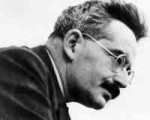

 del.icio.us
del.icio.us
 Digg
Digg